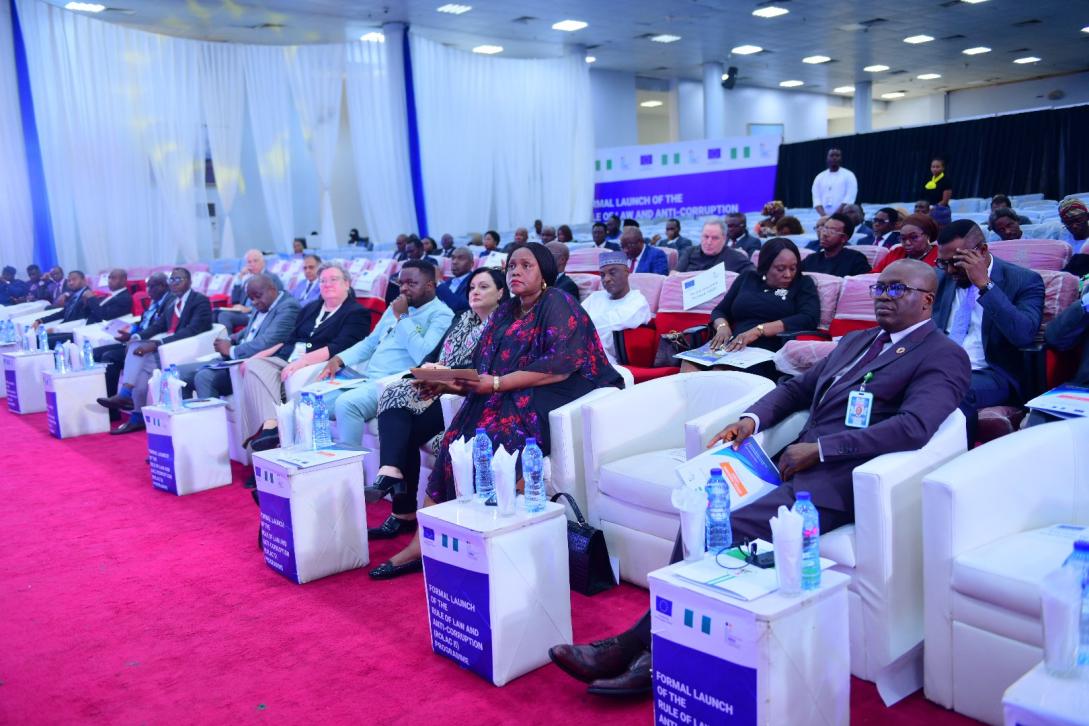EU, partners launch Rule of Law and Anti-Corruption (EU-RoLAC II) programme

Together with its partners, the European Union in Nigeria has launched the second phase of the EU Support to the Rule of Law and Anti-Corruption (RoLAC II) programme. RoLAC 11 will consolidate the gains of RoLAC I, implemented by the British Council from March 2017 to March 2023. The International Institute for Democracy and Electoral Assistance (International IDEA) is implementing the current phase of the programme in six focal states of Adamawa, Anambra, Edo, Kano, Lagos and Plateau.
RoLAC II seeks to uphold the rule of law, combat corruption, address sexual and gender based violence, and promote human rights and inclusivity, in line with the objectives of Nigeria’s National Development Plan 2021-2025. These include improving quality of governance by building strong institutions that promote transparency and accountability and citizens’ engagement and protection; improving service quality; and ensuring respect for the rule of law.
During the previous phase of the programme, RoLAC closely worked with federal and state ministries of justice and women affairs, courts, law enforcement and anti-corruption agencies leading to significant policy and system changes. In this current phase, the programme will strengthen collaboration with the Nigerian government to build on past successes, focusing on implementing the National Anti-Corruption Strategy and National Policy on Justice.
RoLAC II is expected to contribute to the consolidation of the rule of law and good governance reforms in Nigeria. In specific terms, it seeks to help improve the justice and anti-corruption systems for enhanced social cohesion.
“Based on these results (of the previous phase), it was clear to us, at the European Union, that a second phase of this RoLAC was necessary, to consolidate the progress and continue the good work done on strengthening the rule of law and fighting corruption in Nigeria,” Ambassador Samuela Isopi said during the launch.
According to her, the EU is funding over 200 projects and initiatives around the world to promote democratic governance and the rule of law and benefit the most vulnerable in the society. “Fight against corruption is an essential part of these efforts because corruption directly affects democracies, undermines the social contract and affects the rights of the people,” she said. The project will be implemented until 2027.
The European Union has supported Nigeria’s anti –corruption efforts since 2005, contributing a total of 88 million euros through three successive and successful programmes.
